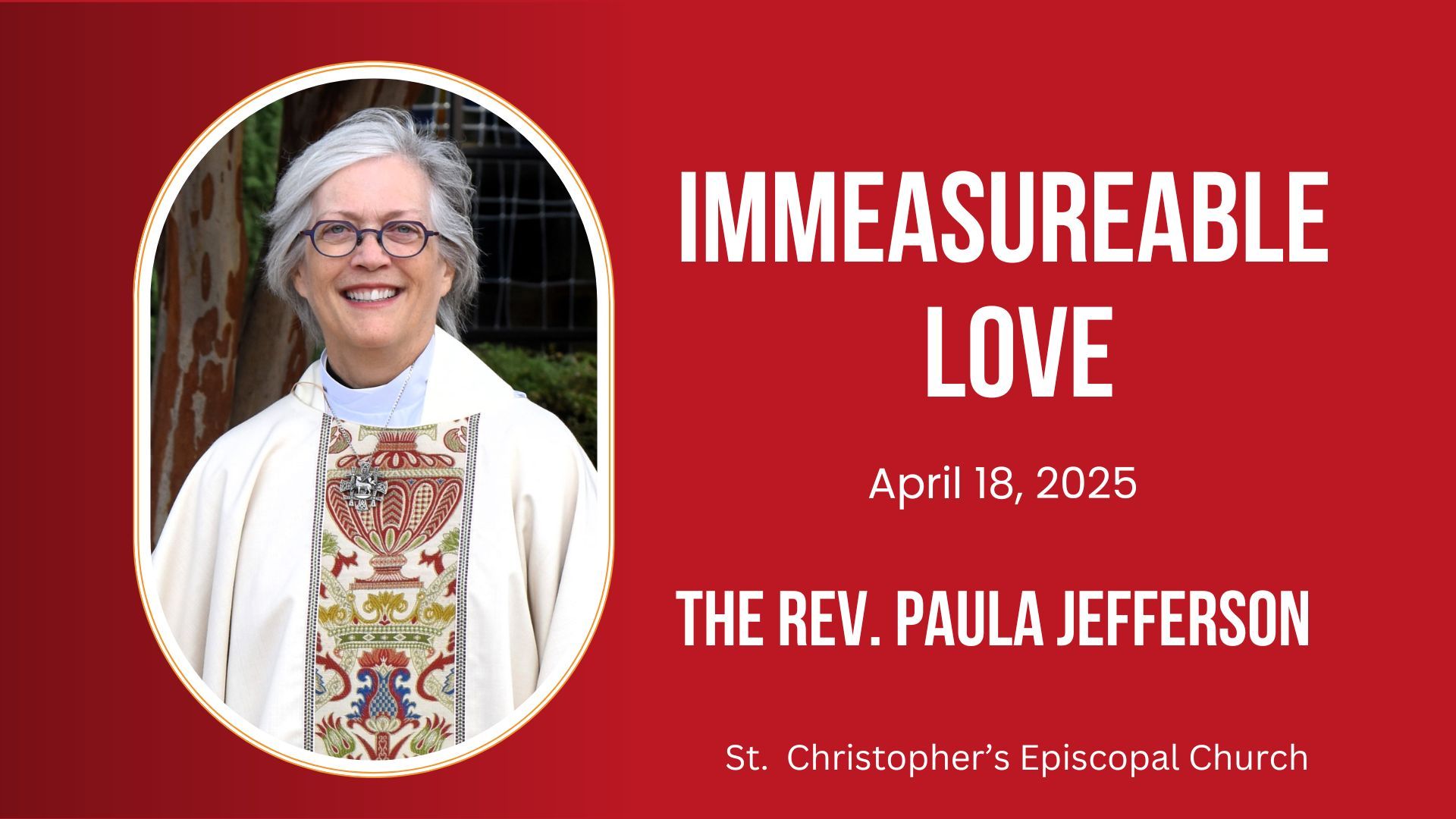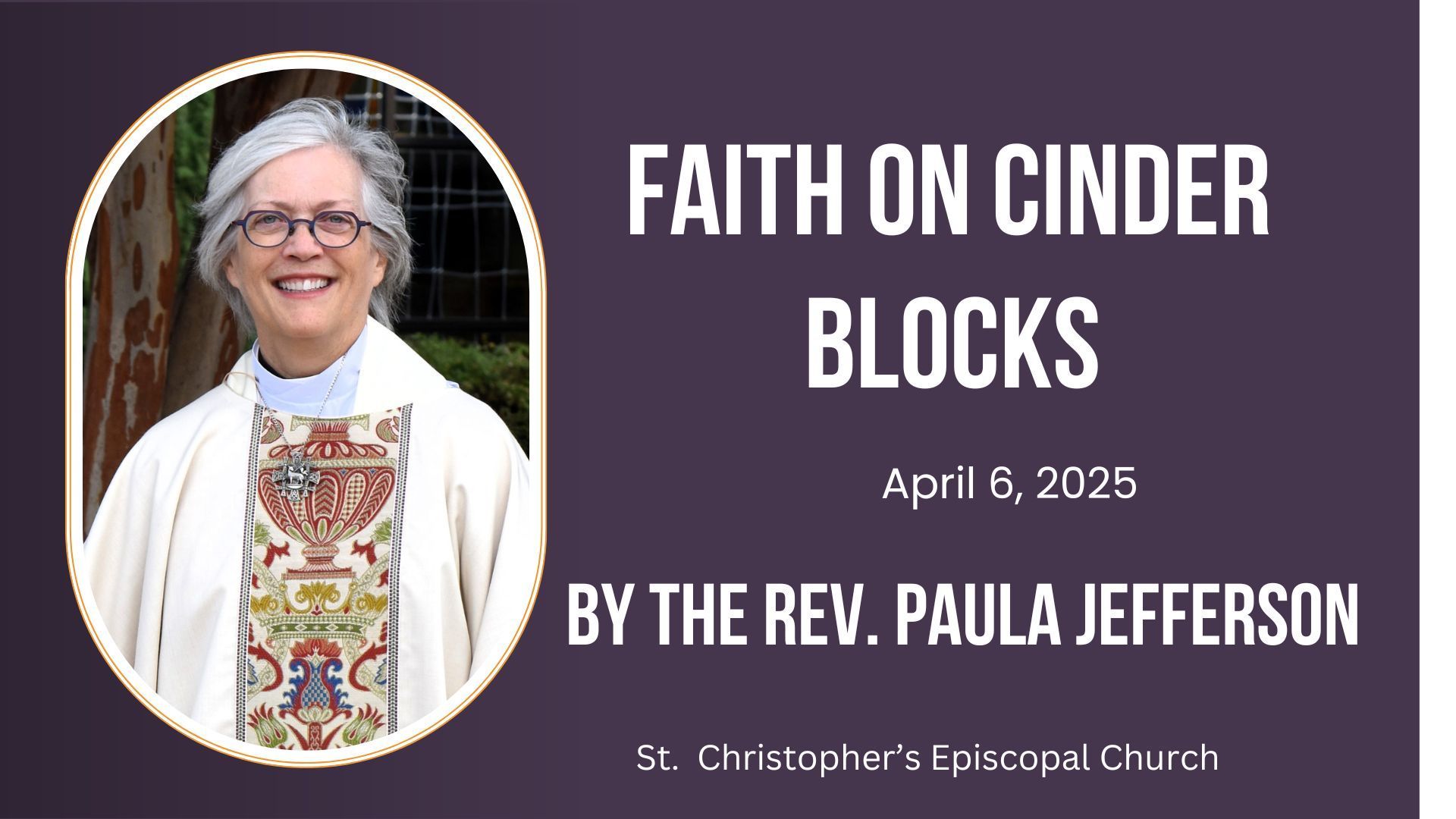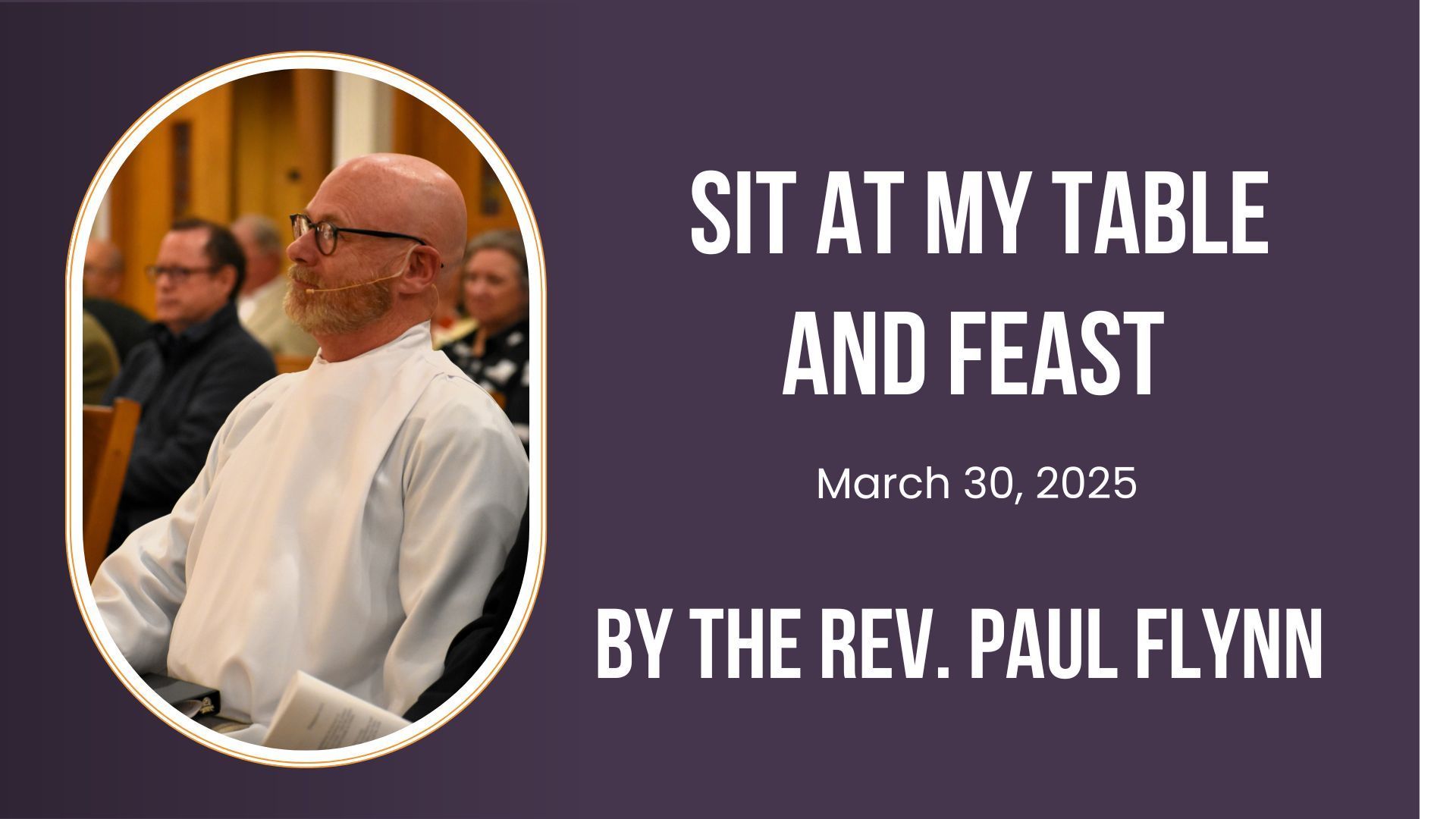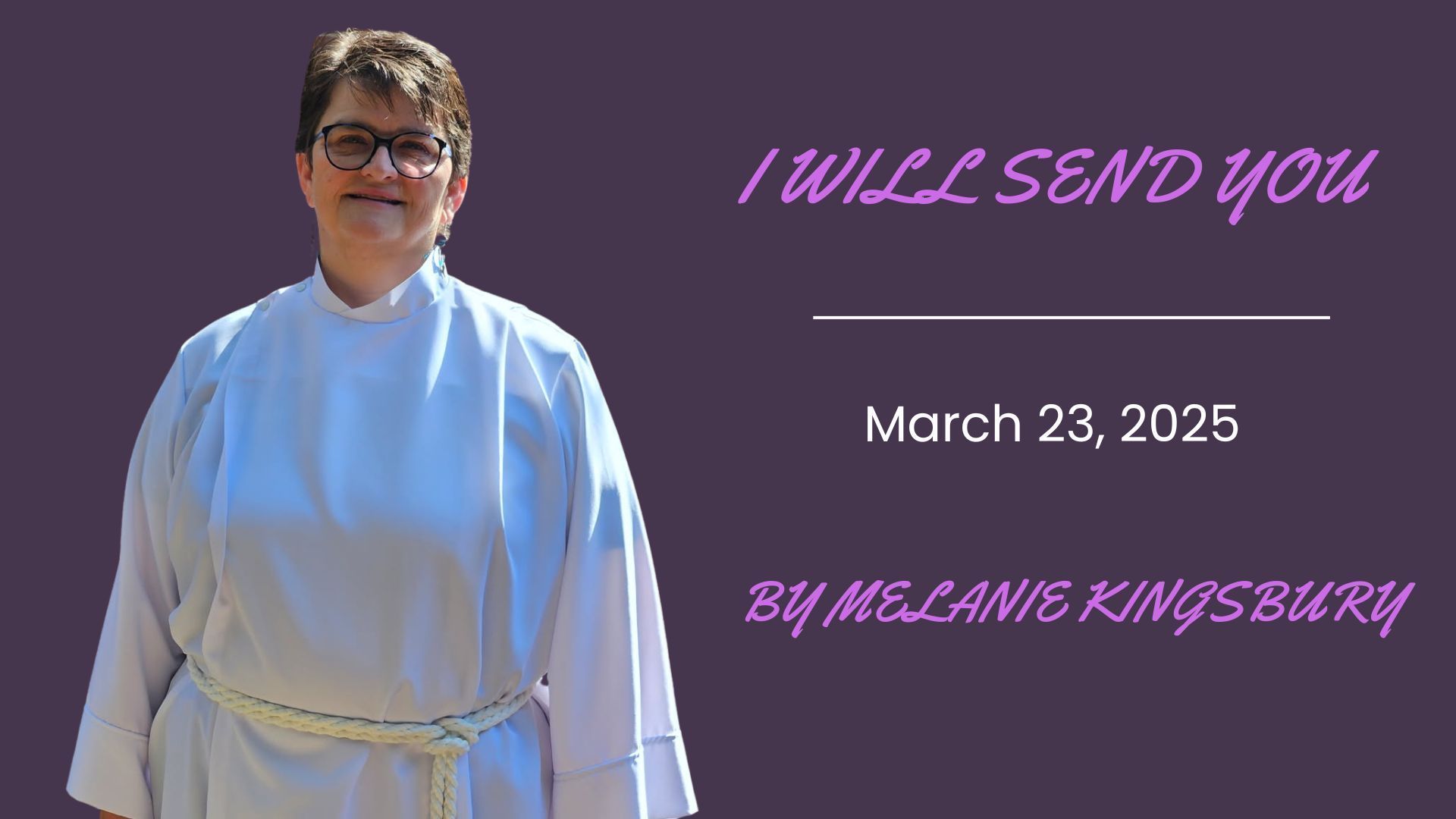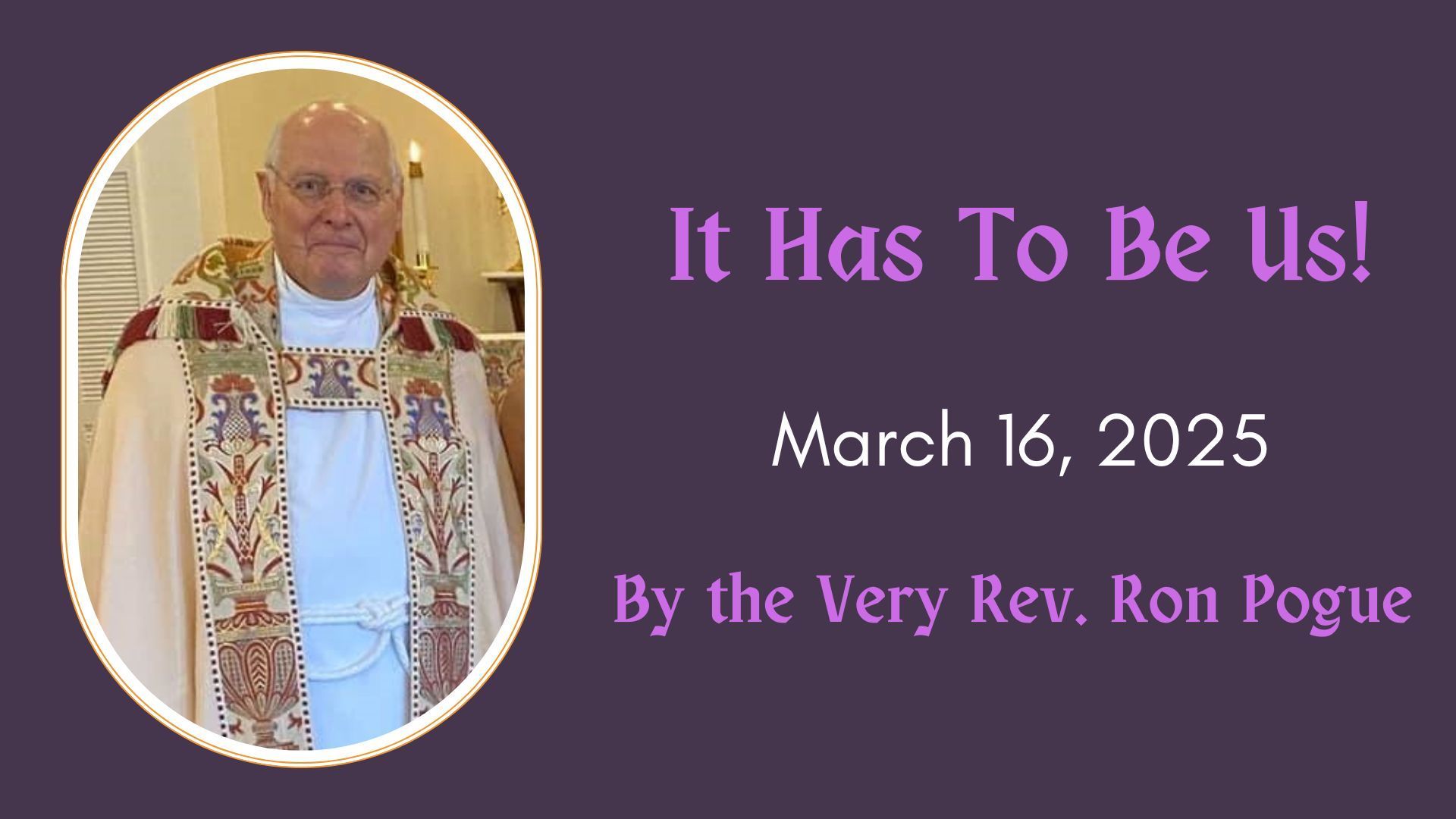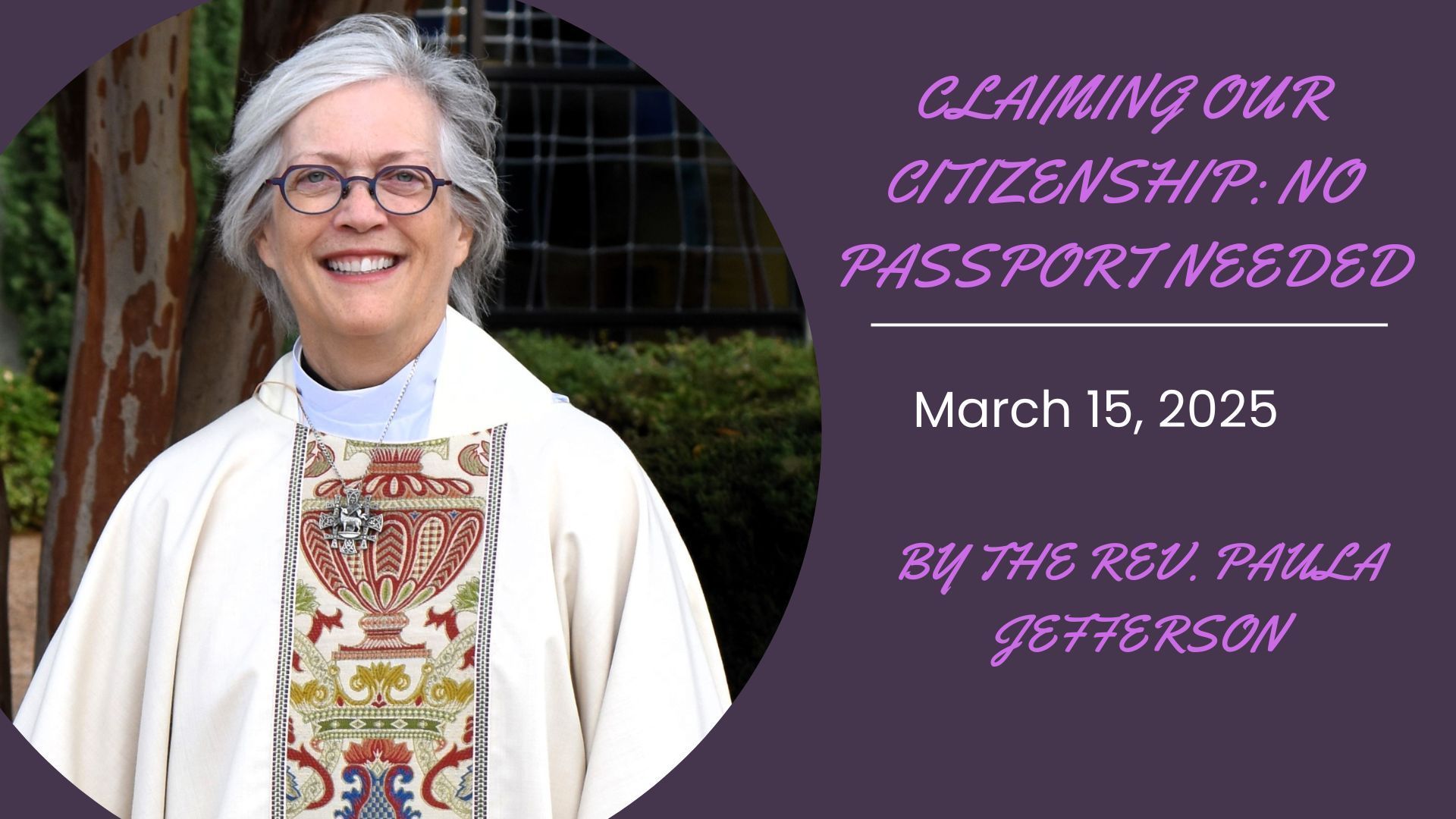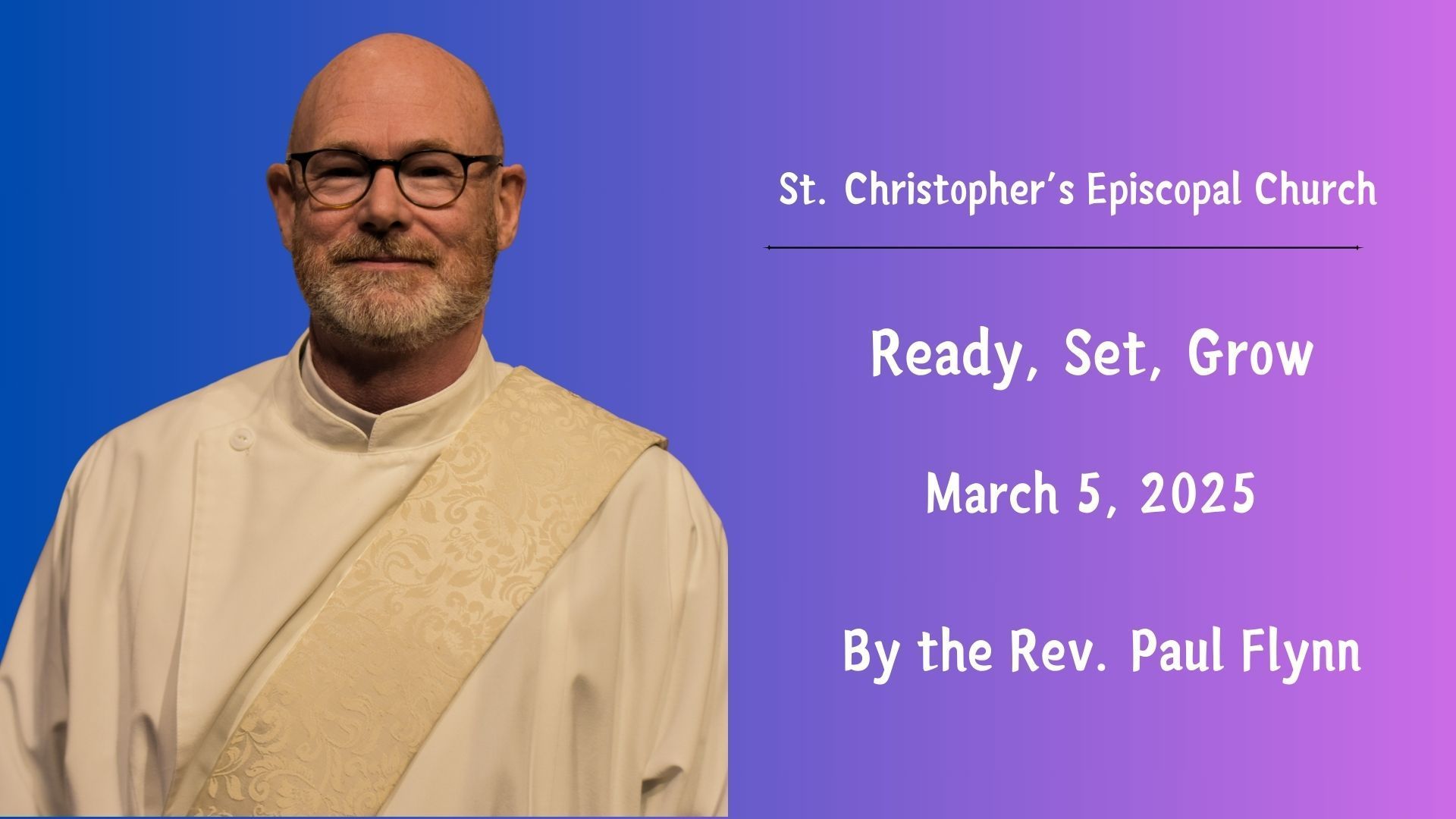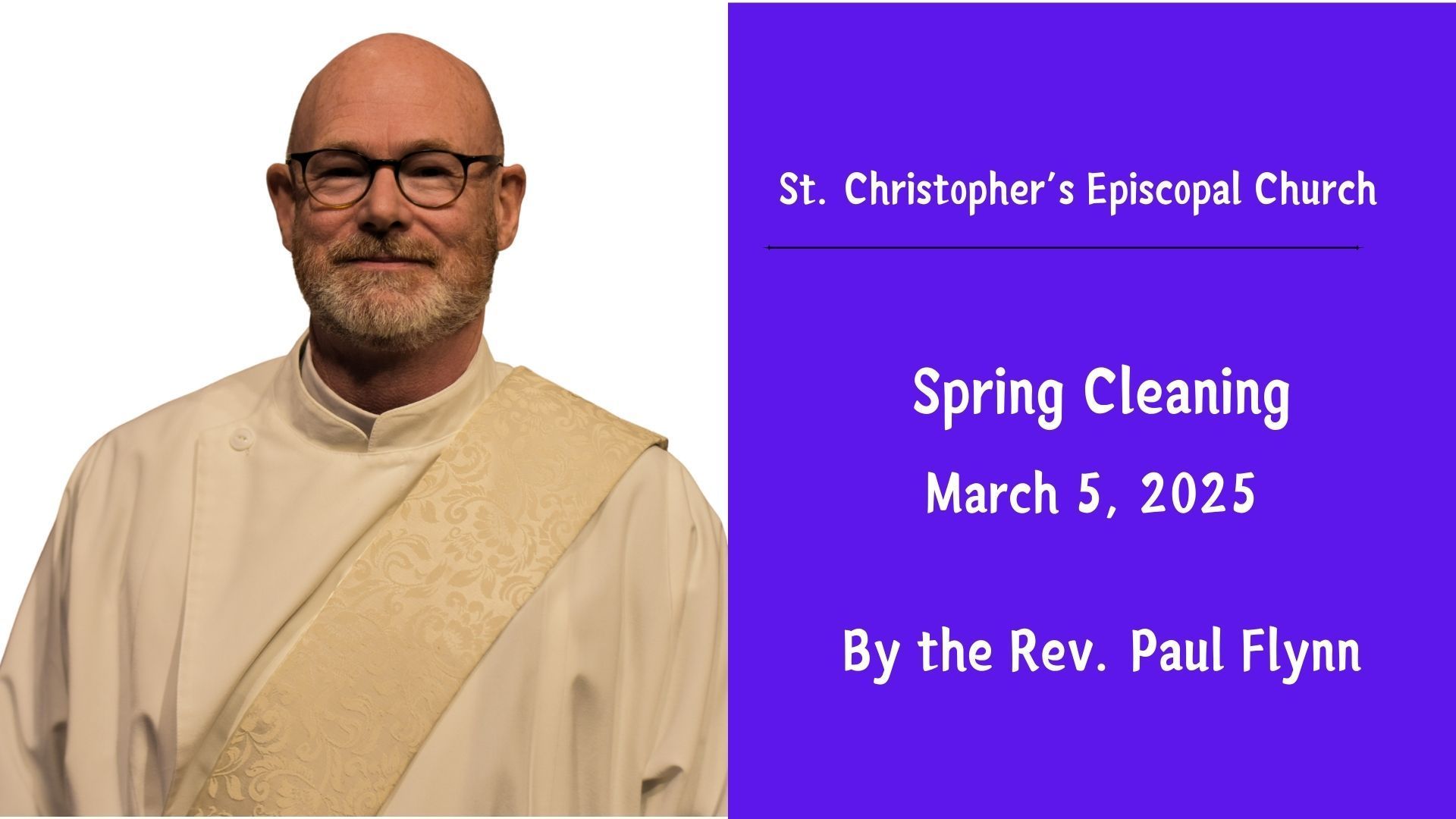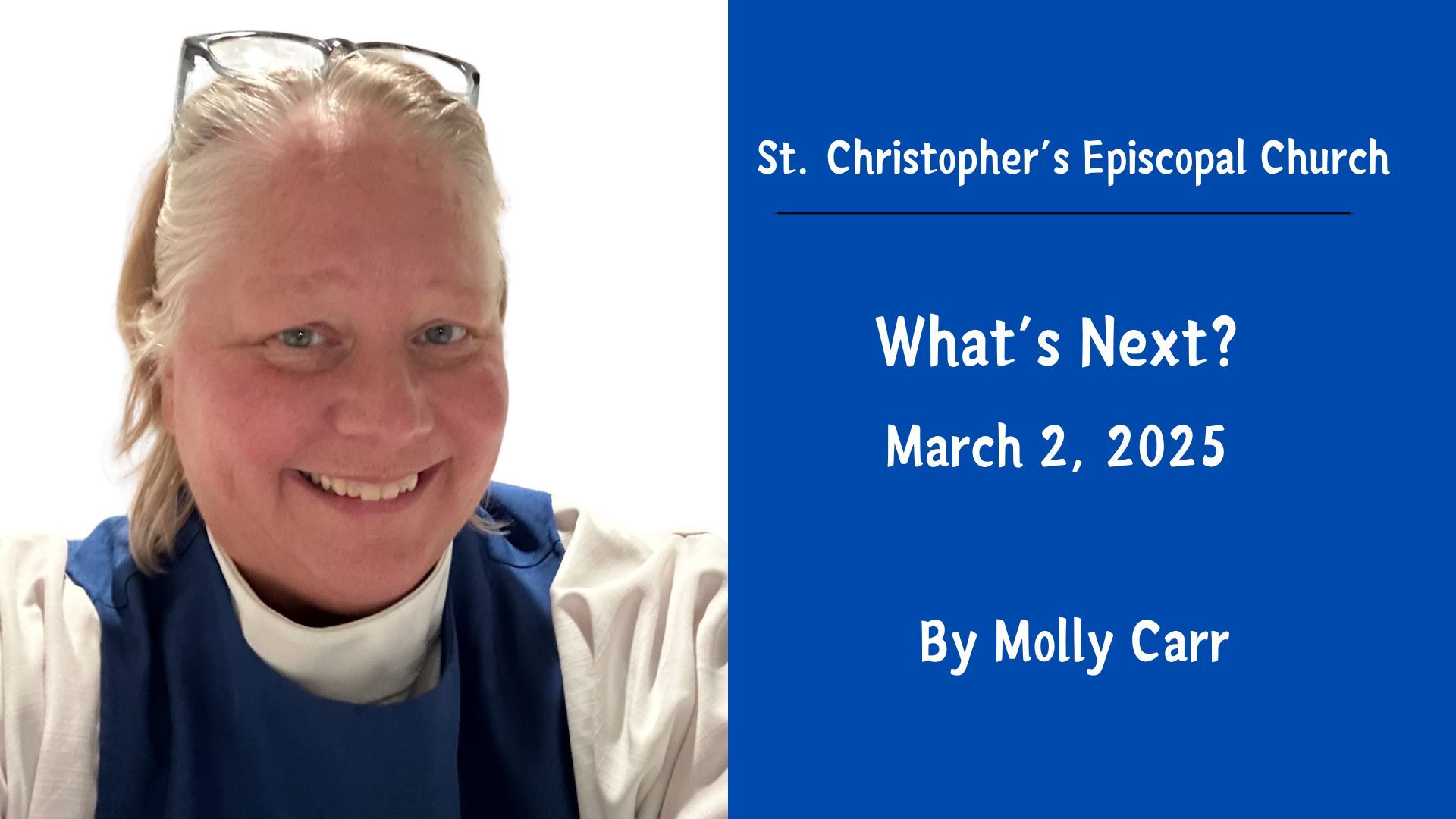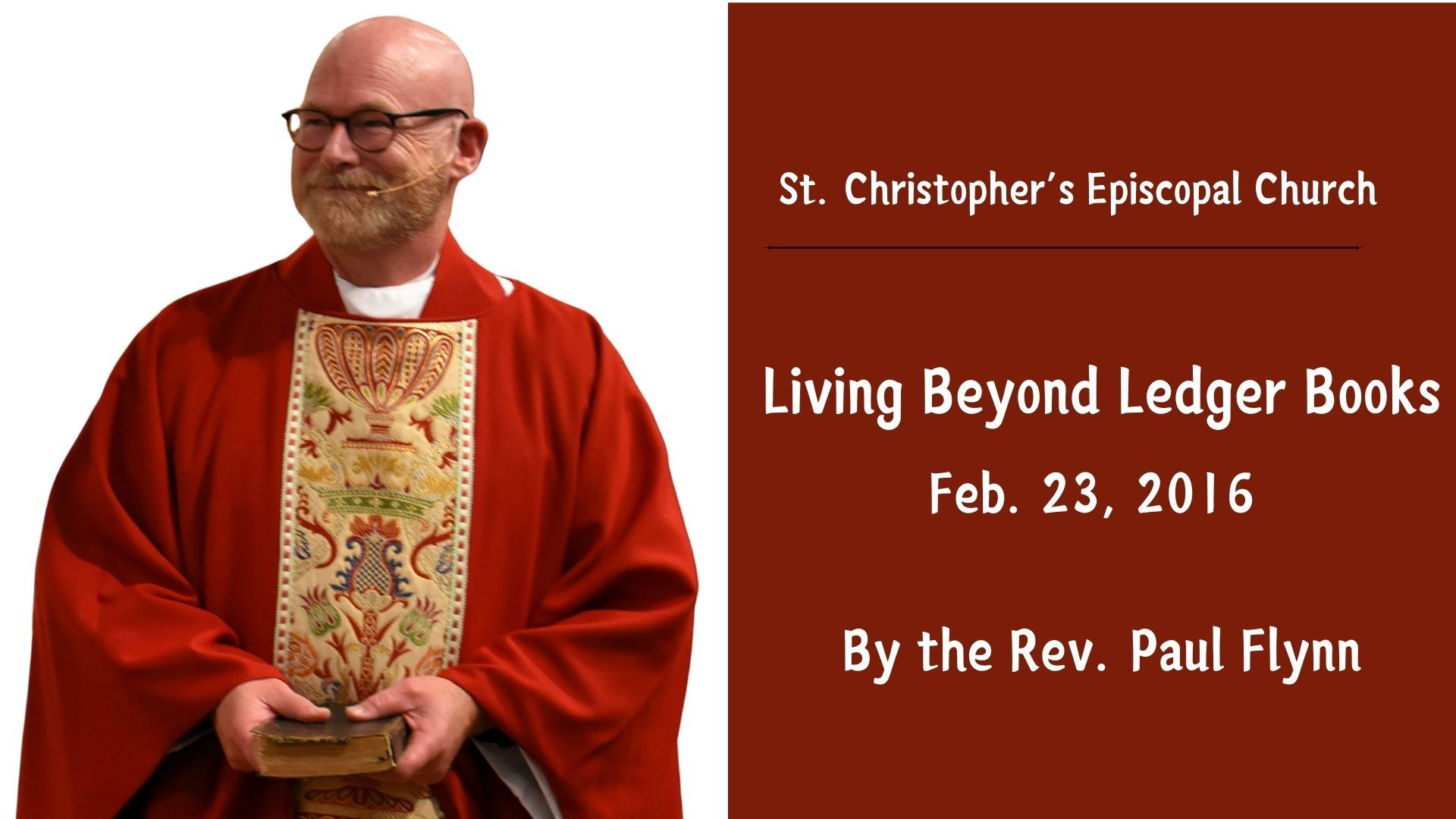All of my grandmother’s bedroom windows were fitted with venetian blinds. Some of you will remember venetian blinds from the 1960’s—the slats were wide two inches or so and made of some kind of pliable metal. I remember playing with the magic wand that closed and opened the blinds. In the morning, the blinds were opened so that light would flood into the room. At night, the blinds would be closed and the drapes drawn.
This week, as I thought about the Gospel readings we’ve heard during our stewardship season— my grandmother’s venetian blinds—as a metaphor --kept returning to me. With each story, Mark’s gospel opened the blinds just a bit—and shed more light on our human tug of war between the desires of this world and God’s power, God’s authority, and God’s love.
Today’s story cranks the venetian blinds wide open.
Jesus was traveling with the disciples. He received word that his friend Lazarus was very ill. The message to him: Please come. Jesus told the disciples this news and then he intentionally delayed his return to Bethany. By the time he reached Mary and Martha, Lazarus was dead for four days.
Martha, Mary, and Lazarus were siblings. They were like chosen family to Jesus—Mary anointed him early in his ministry, Jesus often stayed in their home and dined with them. They witnessed, first-hand, many of Jesus’ miracles, healings -- signs of his divinity.
As the story began, the venetian blinds for all of the characters—even the ones who knew Jesus well—were just half-open.
Mary met Jesus as he was coming into Bethany. “Lord, if you had been here, my brother would not have died.”
People who were there to mourn Lazarus’ death said, “He opened the eyes of the blind man…couldn’t he prevent Lazarus from dying?”
Everyone in this story believed that Jesus could have prevented Lazarus’ death.
No one in this story understood that death is not an end-point in God’s life. It is a point of crisis: a moment of change.
Jesus went to the tomb. The stone was rolled away. And everything changed.
“Lazarus, come out!”
“Unbind him, and let him go.”
The word unbind can also be translated “release”. Lazarus was released or un-bound in many ways. He was called out from a closed tomb—released into this world. He was un-bound from the cloth that held his body in death. Lazarus, and all those who watched this miracle, were unbound from the belief that there are limits to God’s power, God’s authority, and God’s love—in this world.
Along our stewardship journey, we met the Pharisee who wanted to test Jesus on the law. Is it lawful to divorce? We met the rich man who wondered, “What must I do to have eternal life?” We heard the disciples tattle on someone who was doing God’s work without their approval. We heard disciples vie for places of honor in heaven. We heard the voices of the crowd trying to silence a blind man.
Each of these stories was an example of our human nature and how we can become bound to the desire of this world and blind to God’s call in our lives.
The Pharisee had knowledge. Yet, he needed to prove himself wiser than Jesus.
The rich man’s wealth was not his problem. His problem was that he was unable to part with it.
James and John want to sit on the throne of God.
Jesus restored Lazarus—and all of us--to new kind of life. One where it possible for us to be set free from the stuff that binds us to this world.
On Halloween, I gave out 600 pieces of candy…well, 592…someone had to be sure it was safe for the children.
I live down the street from an elementary school. A lot families parked there, and then walked the neighborhood with their children. As the kids explained their costumes to me, I began to notice a consistent theme.
While there were some last-minute goblin costumes, most of the children were dressed like Spiderman, Aqua Man, Wonder Woman, Cat Woman. There was one policewoman (with an actual citation pad), three little firemen, a garbage collector with a smaller version of a recycle bin—he used it to collect candy. There were two Robinhood characters. And on and on.
The character identities the children chose to emulate were those of public servants. Even the fictional characters like Spiderman and Wonder Woman are people who serve those in need, and work for justice and peace. The real-life heroes, first-responders and garbage collectors, also serve people – sometimes risking their own lives for others.
These kids were dressed like saints.
What stood out to me was that not one child was dressed as a billionaire or a CEO or any other cultural icon of “success”.
Young children are able to see sainthood all around them—and they embrace it. The blinds are wide open for them.
Our culture wants to close those blinds—and slowly replace their untarnished vision of the peaceable kingdom with worldly values.
Jesus called Lazarus from old life to new life. Lazarus walked from the darkness of a closed tomb into the light of day. He was surrounded by community who mourned him in death and loved him in life. A community of saints who, like Lazarus, were changed by those words: Unbind him. Set him free.
Life, on the other side of that tomb, is changed.
We are invited to this same life—life that is redeemed, restored, and immersed in the witness of saints: those who’ve come before us, those who journey with us, and those who will follow us.
Jesus is calling to us. Come out! Be free of those things which bind you. Live fully in the Risen Body of Christ.
Alleluia!


